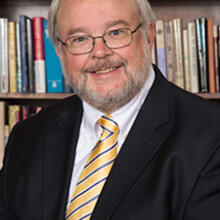Beware those in Washington who minimize moral dimensions of issues by insisting that public choices are simply matters of “prudential judgment” and that therefore religious teaching and moral arguments are really not important. They emphasize the distinction between fundamental moral principles that have compelling moral claims (like the duty to protect innocent human life) and prudential judgments that are matters for debate (like how to overcome poverty).
The distinction is valid, but neither stands alone. We have a duty both to reject policies that violate fundamental principles and to pursue positive actions to carry out moral obligations. When advocates overemphasize these distinctions, they often ignore the moral urgency and ethical criteria for action that come with the principles they claim to respect.
The war in Iraq, a tragic “war of choice,” was a prudential judgment. President George W. Bush and Congress ignored the appeals of Pope John Paul II and the moral questions of the U.S. bishops with horrible costs for our nation and the people of Iraq. How best to protect human life also involves prudential judgments. What measures are achievable? What exceptions, if any, are permissible (e.g., should a ban on federal abortion funding allow exceptions for the life of the mother, rape or incest)?
The duty to care for the “least of these” is essential Catholic teaching. We should be debating how to give priority to the poor, practice solidarity and subsidiarity. We should not be debating whether we are obliged to protect their lives and respond to their needs. Indifference and inaction are not prudential judgments, but violations of a core Catholic principle.
“Prudential judgment” can become a mistaken rationale for ignoring Catholic teaching that conflicts with our partisan or ideological preferences or to act on some principles and ignore others. Some resist racism or other denials of human rights but fail to protect the foundational rights to life and religious freedom. Others deeply committed to unborn human life resist the Catholic condemnation of torture or the church’s call to end use of the death penalty. Pope Francis is challenging us to embrace the fullness of the Gospel, to resist isolation and ideology to protect the lives and dignity of all.
In the budget debate, elected leaders of the bishops’ conference outlined Catholic moral principles and applied them to key budget choices. The bishops then shared the judgment that the House budget failed to meet the conference’s criteria. (It included $36 billion in reductions for hungry families but no cuts for agricultural subsidies.)
Some mistakenly said the bishops were not speaking for the conference, that they ignored needed fiscal restraint or were advancing a partisan agenda. Others overplayed the statements, turning them into partisan talking points or attacks on the faith of individual legislators. Despite these distortions, the conference has chosen this wise path on immigration: outlining moral principles, offering applications on key policy choices and then assessing various proposals. They have made clear that inaction or just a bigger, longer fence or linking immigration to same-sex unions may be prudential judgments, but they are inconsistent with Catholic moral principles.
Catholic teaching is a coherent whole—not a menu of compelling moral absolutes, a set of fundamental ethical principles and a collection of optional positions. Bishops are not just another interest group, and their statements are not just another set of talking points. They deserve serious attention and action.
But they are not the whole church. Lay women and men need to become more informed and engaged in their vocation to be “salt, light and leaven” in public life. This is the mission of the new Initiative on Catholic Social Thought and Public Life at Georgetown University.
The recognition that public choices require prudence is not a way of escaping ethical responsibility; it is a call to principled discernment and decision-making. It is a beginning of moral discussion, not the end. Budget priorities and immigration reform are matters of both moral principle and prudence that reflect who we are as a people and shape what we will become as a nation. John Carr









A simpler statement of the teaching authority of the Church is that we are responsible to make our own moral choices; we cannot "pass the buck" to the bishops or the Pope. They offer moral guidance, i.e.advice as to the morality of the various choices with which we are faced, but their role is not to micromanage our lives, even though some bishops and some Catholics think it is. Only God knows if we sin!